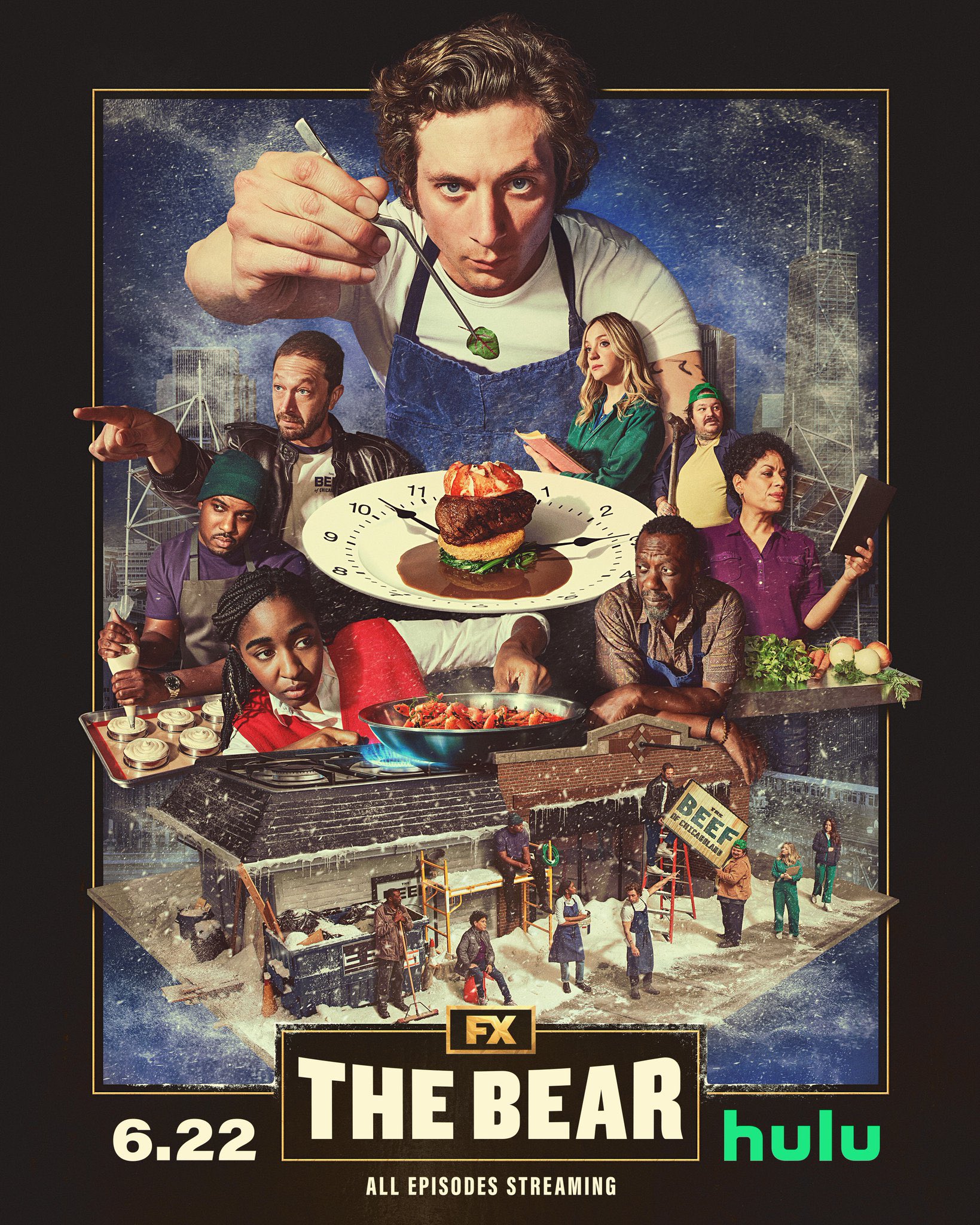There are several outstanding features of the TV show The Bear. I will start with one particular episode, S2E6, called “Fishes.” It’s an hour long episode, instead of the usual 30-40 minutes. Not sure if it was by accident or design but what’s remarkable is that this episode stands completely on its own. In fact, if you have not watched The Bear yet, you can go directly to this episode and watch it. No secrets are revealed and you don’t need to know the backstory. It’s like a chapter in a novel that could also be published as a short story.
The premise of the episode is very relatable. A big Italian-American family has gathered for Christmas dinner. What follows in the hour long journey is dinner preparations, conversations, jokes, and ugly fights.
If you have been watching the show from beginning, you get the first shock within minutes when you see Bob Odenkirk enter the frame and you think, “What is Bob doing here?” More surprises follow as the list of illustrious guest stars expands : Jamie Lee Curtis is Donna Berzatto; Bob is Uncle Lee; Sarah Paulson plays Cousin Michelle and John Mulaney is Stevie, her boyfriend; Gillian Jacobs is Tiffany, ex-wife of Ritchie played by Ebon Moss-Bacharach.
The way this episode has been filmed is phenomenal and you notice it as soon as you enter the kichen where Donna is preparing dinner. Characters are coming in and going out of the frame, camera itself is moving from place to place and the sounds are unbelievable. Normally, when a crowded scene is shot, the voices of main characters are amplified and other sounds recede to background. Not here. So Donna is in the kitchen, Uncle Lee comes in and starts talking to her; then Ritchie and Tiffany come in, talking amongst themselves but you hear both strands of dialogues with the same intensity so you struggle to keep up with both conversations and end up getting snatches of them. Throughout the episode, you get bombarded by conversations from all sides. It’s like being on a battlefield, which in a way, it is. It’s exactly what would happen if you walk into a real life crowded kitchen.
It reminded me of Paolo Sorrentino’s masterpiece La Grande Bellezza, that starts with a 12 minute long montage of people dancing their hearts out in a big party (that begins with a serene afternoon; you can almost feel the heat of the summer in Rome with the choir singing a haunting Yiddish melody composed by David Lang). The characters in this party are mostly background and it is only near the end that the protagonist Jep Gambardella (Toni Servillo) is revealed. The action, such as it is, slowly builds up, rising to a crescendo into a climax which is a soft landing – namely the gentle manner in which Jep introduces himself. It goes very well with his character – that of a sensitive writer. “Ero destinato alla sensibilita,” he says in his characteristic self-deprecating manner – “I was destined for sensitivity.”
The Bear episode is a different animal altogether. As in any extended family, the characters have literally spent their entire lives with together and know each other inside out – the pressure points, the weak spots and the secrets. What should have been a happy festive occasion soon turns ugly, the action slowly rising to a crescendo, the tension becomes unbearable before a shocking climax that hits you like a lightening bolt.
I don’t know which category the one hour duration of the episode fits, but this episode could easily be screened at a film festival as an independent entity and would be appreciated very well.
Coming to the whole series, there is another defining aspect to it. It uses extreme closeups most of the time. This is a technique that is not used very often in movies, but has produced remarkable results whenever it was used. Who can forget the climax of The Good, the Bad and the Ugly where Sergio Leone combined extreme closeups with fast cuts to achieve a thrilling end.
Other memorable example is from the movie All the Presidents Men where Bob Woodward (Robert Redford) speaks to Kenneth Dahlberg and gets him to admit the source of the money. It’s a shot without cuts, with Redford making several calls in between. The moment when he discovers the truth is extreme closeup and high point of the whole scene.
In The Bear, Jeremy Allen White playing Carmen “Carmy” Berzatto, has two long monologues. One is about 2.5 minutes long while the second one is 6 minutes, both without cuts. In both cases he is speaking in group therapy sessions, talking about his fears, insecurities, and triggers. Naturally, both scenes are loaded with emotions. With the whole scene in extreme closeup, Jeremy has very few tools at his disposal – little bit of hand gestures, his face and his voice. This is really an acid test for any actor. You either ace this scene or you don’t. Needless to say, Jeremy gives a phenomenal performance.
Extended cuts are an integral part of the series. With long takes and fast moving action in the kitchen, the actors must have felt as if they were performing on stage instead of in a TV show. This technique captures the chaos of a professional kitchen beautifully. In between extended cuts are the closeups which means all actors have to be top notch with their facial expressions.
By adopting a distinctly different style to filming, The Bear manages to stand out from its contemporaries. The extended cuts help to visualise the chaos in a professional kitchen on a practical level while the closeups bring out the human emotions that are smouldering in the background. It’s this synergy in action that makes The Bear so special.


